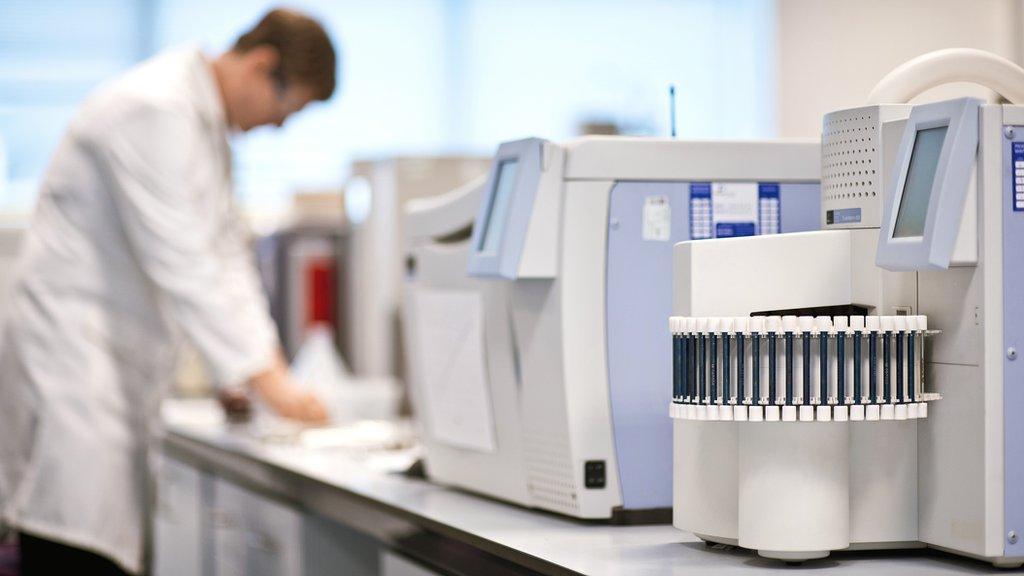MPs urge Chancellor to 'supercharge' science
- Published

The chancellor must "supercharge" the UK's science base with more funding, the new chairwoman of the Commons science committee has said.
Conservative MP Nicola Blackwood told BBC News that spending on science had to increase in the long term if the UK was to remain competitive.
She also said it was "farcical" that many scientific facilities were unused because of a lack of funds.
Government ministers have commissioned a review into research funding.
Ms Blackwood, whose committee has published a report, said: "The UK is a science superpower and an understanding of science is important for us to deal with complex societal issues, such as ageing, contagious diseases, climate change and antibiotic resistance.
"Our scientists will be at the forefront of meeting these challenges. We should supercharge the science base. That won't be achieved with a 'flat-cash' settlement.
"A clear roadmap to increased spending would be a signal of government intentions and would attract further jobs and investment to the UK."
International comparison
The HoC Science and Technology Select Committee, external report has called on the government to set a path for increasing public and private sector science R&D investment in the UK to 3% of GDP, which is a target agreed by European Union countries.
The MPs point out that since 2010, science funding has been frozen, which has meant an effective cut of around 6%.
"This has left the UK spending 1.7% of GDP on science and research, below the OECD average of 2.4% and behind the 2.8% and 2.9% spent by the US and Germany," the report notes.
It also highlights a mismatch between money spent on building and improving laboratories - so called capital spending - and so called resource spending, which is the day-to-day funding of scientists to run experiments in those facilities.
For example, a £400m neutron source at Harwell will only run for approximately 120 days this year.
"At a time when the government is focusing on productivity, it is farcical that we are not realising the full value of our capital investments because new science research facilities do not have the annual resources to run at capacity - because 'batteries are not included' with capital spending.
"This must be put right as a matter of urgency, not to mention common sense," said Ms Blackwood.
Caution urged
The chancellor, George Osborne, and the previous science minister Greg Clark, commissioned a review of the way in which science is funded and the bodies through which research grants are distributed.
They wanted to see if the current system could be made more efficient and better serve societal needs.
The select committee has cautioned against any radical change.
"The current system has produced a world class and highly efficient system for scientific research," it says.
"Any significant changes to this system, including the balance of funding between research councils and university funding councils, would require a clear justification, which has yet to emerge."
Follow Pallab on Twitter, external
- Published29 September 2015

- Published17 July 2015
